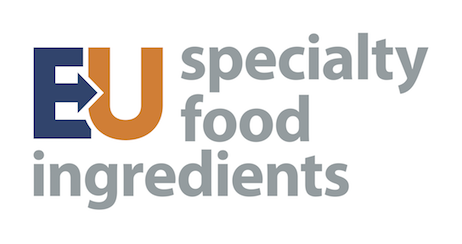EU Specialty Food Ingredients News
2013-12 New perspectives on food security and consumer trust
Thirty years after its creation, EU Specialty Food Ingredients was honoured to invite its membership, key stakeholders of the food chain, regulatory bodies and BtoB media to participate in a fruitful debate that was punctuated by keynote presentations.
Moderated by the renowned Gastronaut, Food Writer and TV Presenter Stefan Gates, the event was introduced by ELC President Hans-Christian Ambjerg, who declared: “The European specialty food ingredients industry operates in a very dynamic environment. Anticipating, and adapting rapidly, to trends and consumers’ expectations – i.e. new taste experiences or nutrient reformulation – is a crucial part of our business. We need to understand these trends, drive forward innovation and reinforce its competitive position on the global marketplace. Also, innovation does not happen in isolation: we reach out to the food industry, and especially SMEs, who expects us to be their source of innovation”.
Based on European Food Information Council (EUFIC) mission of wanting to improve consumer understanding in the area of food and drink, Dr Sophie Hieke, Consumer Insights Manager at EUFIC explained that “a science-based development of communication and information for consumers is crucial. This cannot be achieved solely by looking at market research, meaning frequencies and descriptives. It is essential to understand why certain consumer behaviour takes place and for this, more in-depth consumer research is needed. The collaboration between research (academia) and industry is key in this process”.
V. Krishnakumar, Managing Director of Giract, considered that “the EU ingredients, additives, novel foods legislation has not achieved its objective of assuring the consumers regarding the safety aspects and has in fact resulted in alienating the consumers from well-tested and very safe food ingredients. (…) After nearly a quarter century, when the work on these legislations started, V. Krishnakumar called for a “review of these specific regulations: an examination of legislations in other countries, and specifically in the USA, leads us to believe that a simpler legislation with more responsibilities with the food producers may well be a good forward option – in short, moving away from an ‘economic regulation ‘to a ‘social regulation’ is required”. Finally V. Krishnakumar saw two pre-conditions for the success of any future legislation in an evolving Europe: “1) any legislation process should include the consumers/their representatives right from the first step of the process, and 2) the European food and food ingredient industry needs to focus on having a much more transparent dialogue with the consumer in order to regain the lost trust”.
Peter Wennstrom, President of The Healthy Marketing Team, considered that consumers “distrust processed foods: what is hidden is not trusted – and food scares are just confirming what consumers suspect”. According to him, “the one-eyed focus on cost reduction in the industry is reducing nutritional quality as well as ethics in food production and as a consequence also consumer trust”. He added that “we were at the start of the natural foods era – and there is no turning back (…)”. Peter Wennstrom also noted that consumers were “turning their backs on health claims, which are not understood and not relevant for most consumers they only contribute to confusion which is the consumers’ main problem. (…) The need is for more education – not more claims, he said. In his opinion, “a regulatory driven strategy ends up in a road block – and for most companies it is a barrier to innovation. And as such has put a dead end over the European Food Industry”. Peter Wennstrom concluded that “education based strategies were the only way forward – both for society and for companies. Education starts by educating oneself of the needs and interests of the receiver of the information. Society and companies must educate consumers about the relationship between food choices and health and that education starts by learning about consumers and their different attitudes to food and health”.
Peter Leighton, Founder of Abunda considered that “in order to build greater value (and profits), suppliers should be looking at driving greater end-user (consumer) benefits into their products”. According to him, “innovation requires looking at emerging consumer trends and unarticulated needs. Focus on providing a lifestyle antidote without trying to parse regulatory language is key” to Mr Leighton, who also emphasized that “health claims were anchored in the perception of the product”.
EU Specialty Food Ingredients would like to thank again the speakers for their enlightening contributions to the debate on a secure food supply chain in Europe and the role of specialty food ingredients in it. ELC members are looking forward to using this valuable insight in future discussions, as it brings new perspectives on food security and consumer trust.
News
Press Room
If you're a journalist or PR person, we have complete information packs on various subjects.

